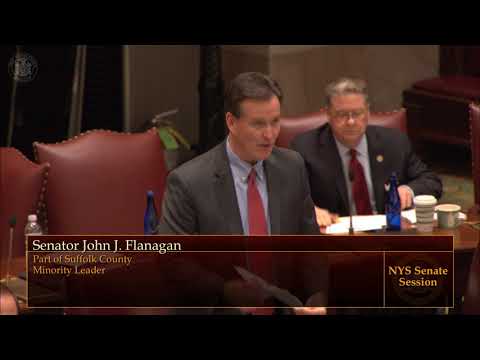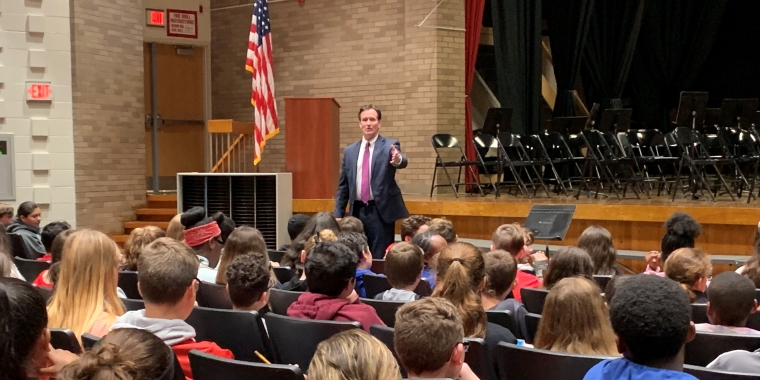
Senate Passes Senator Flanagan’s Home Invasion And Sexual Abuse Legislation
John J. Flanagan
April 19, 2011
-
ISSUE:
- Crime
The New York State Senate recently passed several anti-crime bills to strengthen penalties and create new charges for offenses including two measures sponsored by Senator John Flanagan (2nd Senate District) that would expand the penalties for home invasions and sexual abuse. The two bills were part of a package that included legislation dealing with bank robberies and driving irresponsibly. The package will help deter criminals, hold violators accountable and create safer communities throughout the state.
The first piece of legislation that Senator Flanagan sponsored would create the crime of home invasion robbery in the first and second degree. The legislation, which defines a home invader as someone who enters a dwelling with the intent to commit a crime and who actually commits the criminal act, would increase the penalties faced by these perpetrators to help protect innocent residents from this heinous and invasive crime.
Under the legislation, anyone involved in the crime who causes serious physical injury to a person who is not a participant in the crime; or is armed with a deadly weapon; or uses or threatens to use a dangerous instrument or displays a loaded pistol, revolver, rifle, shotgun, machine gun or other firearm would be guilty of the crime of Home Invasion Robbery in the first degree. This new crime would be considered a class B felony and would be punishable by up to nine years in prison.
Senator Flanagan’s legislation would also establish the crime of Home Invasion Robbery in second degree, which would be classified as a class C felony and punishable by up to five and a half years in prison, for those who commit the act of home invasion robbery with the assistance of another individual.
“Home invasions must be dealt with strongly because they have a clear and negative impact on the very fabric of our lives. Our residents should be able to feel safe in their homes and these changes would help provide them with a greater sense of security,” stated Senator Flanagan. “This is a violent crime against a person, not just their property, and those that perpetrate such crimes must face severe punishment when they make the decision to victimize members of our communities.”
The other piece of legislation sponsored by Senator Flanagan would expand the definitions of aggravated sexual abuse to include victims less than 13 years old when the defendant is 18 years old or more. Currently, New York State law states that crimes against those 11 years old or younger fall under that category of aggravated sexual abuse.
“A person under the age of 13 is a child and they should be protected from being preyed upon by those who are legally adults. This change is a common-sense piece of legislation that is long overdue and I urge the Assembly to pass this law so that we can extend needed protections to the children of our community,” stated Senator Flanagan.
Both of the measures were sent to the Assembly for further action.
Other pieces of the package that were passed by the Senate and sent to the Assembly include:
- Establishing penalties for failure to provide a DNA sample and to register or verify as a sex offender. The legislation would make such failure a Class E felony for a first offense and a Class D felony upon subsequent offenses;
- Prohibiting registered sex offenders from obtaining employment which would include unsupervised access to residential living quarters including residential building superintendent, manager, maintenance worker, home or assisted living facility health aide;
- Increasing the penalty for robbing a bank to a class C felony;
- Requiring registered sex offenders to provide a statement that they understand the residency and employment laws that they must adhere to; and
- Requiring mandatory license suspensions for certain Vehicle and Traffic violations by licensed drivers under the age of 18.
Share this Article or Press Release
Newsroom
Go to NewsroomSenator Flanagan On Kings Park Sewer Legislation
May 30, 2019

Summer Safety Information 2019
May 28, 2019


